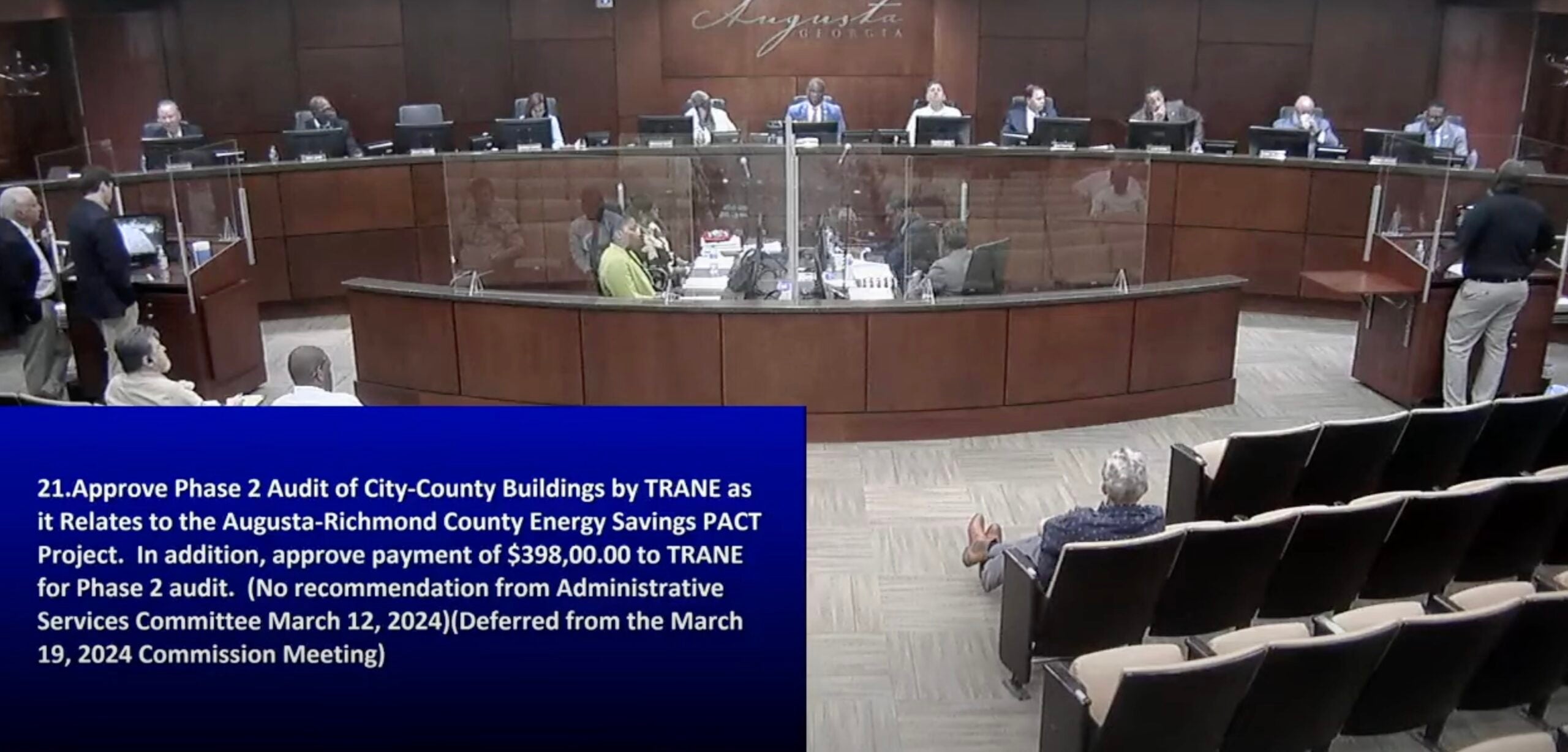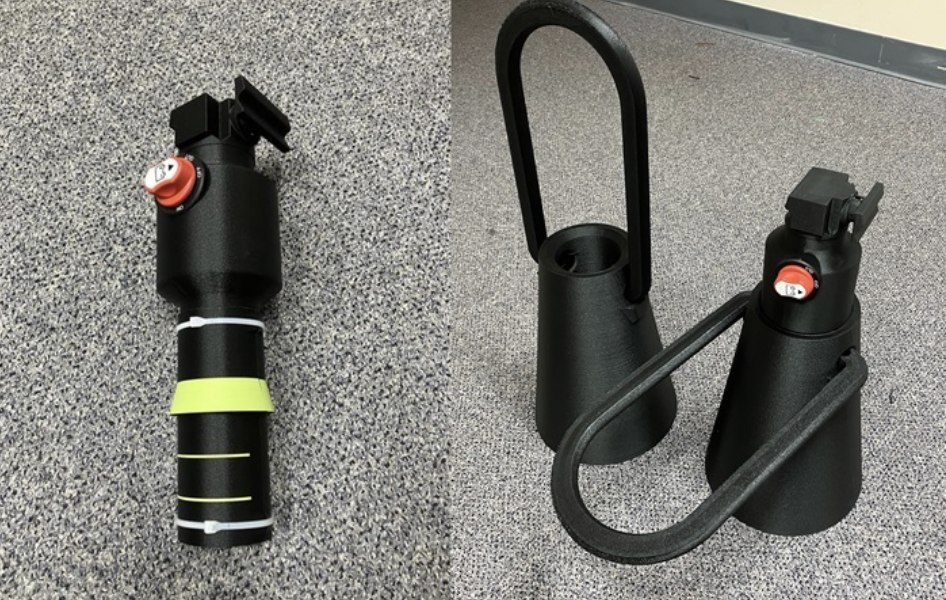The Augusta Commission slammed the brakes on a $25 million energy savings audit with Trane Tuesday after learning about pending litigation in Birmingham involving the company and questions about the Augusta deal’s ability to pay for itself.
Procurement Director Geri Sams presented a rolling-basket of documents to commissioners Tuesday after being asked to take a look at the procurement just before the Masters Tournament.
“What we’re going to have before you is a very, very, very serious matter,” she said.
Her findings included a lawsuit filed two years ago by the city of Birmingham, which Trane had listed as a reference in its 2018 Augusta proposal.
MORE: Groups call for ‘no’ vote on mayoral referendum
The Alabama suit, which recently was remanded from federal to a local court, claims the Magic City was hoodwinked into paying Trane nearly $70 million to upgrade some 119 facilities.
The energy, lighting and other upgrades were supposed to save Birmingham $100 million over 18 years, but weren’t coming close to doing that, it said.
Trane energy services account executive Thomas Brown told Augusta commissioners that energy costs have risen sharply over the last few years, but declined to comment specifically on the litigation.
Trane was “not aware of the objections to this information,” Brown said, adding that the company also had lacked access to the buildings to measure cost-savings.
Sams said she’d asked if Trane could show the cost-savings for a single Augusta building, but was told it could not. Commissioner Wayne Guilfoyle asked if any of the allegations could be proven in a court of law.
The questions arose when Interim Central Services Director Ron Lampkin presented a hastily-prepared expansion of Augusta’s Trane program last month. He said the city needed to immediately approve the expansions to maximize its savings from solar tax credits.
Lampkin called the expansion “Phase 2,” but it wasn’t really Phase 2, Sams said. The original Phase 2 consisted of the project’s implementation – of air quality, HVAC, lighting, energy, water, building automation and other upgrades, including solar, after an initial project development phase, according to Sams’ documents.
Other questions included why in Lampkin’s “Phase 2,” most of the buildings listed for auditing and upgrades were already covered in the original plan.
When commissioners approved the agreement with Trane two years ago, they touted its “guaranteed” savings. But the documents don’t appear to require the program be self-sustaining or guarantee savings, Sams said. Moreover, city officials have now estimated the upgrades may cost some $14 million over the $25 million the commission has already spent, she said.
Commissioners, including Mayor Pro Tem Brandon Garrett, appeared surprised by the report. Garrett and other commissioners said it seemed unclear at that point what would come next.
“We’re laughing, we’re joking, but this is no laughing matter,” said Commissioner Alvin Mason, who requested the agenda addition in March. “Do we cut our losses and run or what do we do at this point?”
Commission OKs tiny home village
In other action, the commission approved rezoning to allow a tiny home village for needy youth on Merry Street, at a donated former city park.
Former commission candidate Michael Thurman said most of the Richmond Academy-area’s residents couldn’t make the Tuesday meeting, although said he’s gathered more than 30 signatures in opposition from people who live in the area.
The site is close to the Family Dollar on Central Avenue, but otherwise miles from a grocery store and a few blocks from public transit in an area with no sidewalks. Thurman also inquired of the impact of a large apartment complex proposed about two-tenths of a mile away.
North Augusta Architect Joe Gambill, who chairs the board of Bridge Builder Communities, said the tiny village project has a comprehensive plan and take up only 6% of vacant land at the park site.
It will grow to be a $3 million investment with gated access and a six-foot fence on its side and rear boundaries, he said. Organizers have raised about a third of the money, he said.











